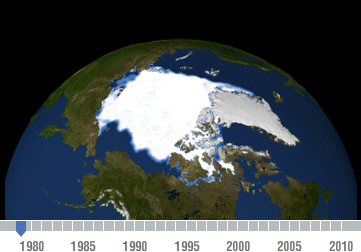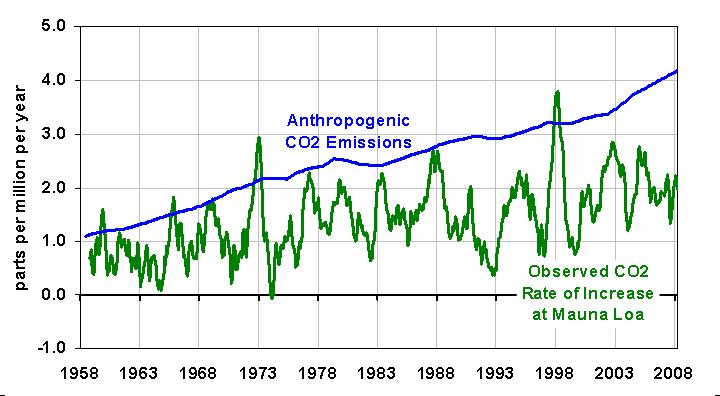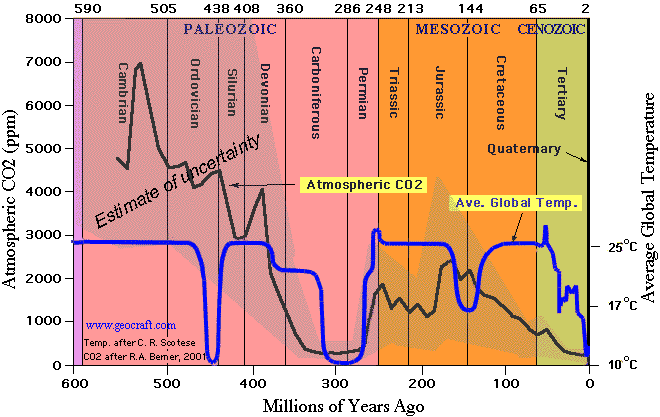Science is not ultimate truth. That is the point. Science is a system of trial and error, with theories and experiments and conclusions that, although are predictable and reliable, are open to criticism. However, stereotypical critics of science like to take advantage of the fact that science is not perfect. There are scientists who like to think that their theories are fact, or correct, or somehow ultimate truth, because their research is valid and replicable, but to lose trust in the system of science based on bad examples such as these is silly thing to do.
Unfortunately this includes environmental science, and all studies related to ecology. This presents lots of problems, including stalling very important developments that could potentially save human lives and nature. What many environmental opponents have in common is the anthropocentric mindset: that a person’s moral struggles are more important than mere biological survival. Conservative stereotypes tend to think this way too.
Myth: Environmentalists are radicals who think humans are a plague
“There is a grave danger facing mankind. The danger is not from acid rain, global warming, smog, or the logging of rain forests, as environmentalists would have us believe… In a nation founded on the pioneer spirit, [environmentalists] have made “development” an evil word, attacking the man-made as an infringement on pristine nature. They inhibit or prohibit the development of Alaskan oil, offshore drilling, nuclear power—and every other practical form of energy… Housing, commerce, and jobs are sacrificed to spotted owls and snail darters. Medical research is sacrificed to the “rights” of mice. Logging is sacrificed to the “rights” of trees.”
— Michael Berliner

(Tokyo looks pretty without humans.)
Berliner has a PhD in Philosophy from Boston University and held the position as executive director of the Ayn Rand Institute for 15 years, an objectivity themed think tank based in California. While being objective about popular paradigm shifts is important to intellectuals of all kinds, direct criticism of a movement by calling it socialism is a bit cliche.
In this argument alone, anthropocentrism is bleedingly obvious. Ironically all dangers to mankind are discredited as unimportant issues compared to the philosophy of environmentalism. There is no balance to this argument, nothing about renewable energy and clean jobs, or sustainable housing or products, green politics is avoided, and nevermind contributions to human health thanks to environmentalist movements. There is nothing about environmentalism either; the examples of ‘man raping nature’ is an extreme conservationist viewpoint, and every group has their fair share of extremists. Environmentalism is such a broad topic of interest, but instead it is painted as a human-hating worldview.
A second example of environmental stereotyping is from Robert James Bidinotto, another fan of Ayn Rand. This critic was editor-in-chief for The New Individualist for three years and sees environmentalism as a radical agenda for anti-progress.
“But the leaders of the organized environmentalist movement have a very different attitude and agenda… to stop the “assault” and “onslaught” of human activity: to place every possible impediment to man’s further development of the earth and its resources. They pursue this anti-human agenda tirelessly and consistently. Their fanatical activities have led not just to enormously increased financial burdens on us all, but — demonstrably — even to the deaths of thousands of men, women, and children worldwide”
— Robert Bidinotto
Actually, the environmental leaders of the world are NASA scientists (James Hansen), BBC producers (David Attenborough), California governors (Arnold Schwarzenegger), former Vice President of the United States (Al Gore), and Nobel Peace Prize winners (Norman Borlaug). The only thing they have in common is an interest in solving ecological problems. All the links to Bidinotto were broken and his claims went unresearched.
Myth: Environmentalism is a religion/brainwashing people
“There’s an initial Eden, a paradise, a state of grace and unity with nature, there’s a fall from grace into a state of pollution as a result of eating from the tree of knowledge, and as a result of our actions there is a judgment day coming for us all. We are all energy sinners, doomed to die, unless we seek salvation, which is now called sustainability.”
— Michael Crichton
Sci-fi writer (Jurassic Park)
Crichton is an interesting fellow, smart guy who also doesn’t believe smoking as any negative side effects. He’s a pretty popular science critic, which is ironic since his sci-fi novels are more technical than fantasy. Lots of his facts about environmentalism are skewed, but his most obvious flaw is stereotyping all environmentalists as extremist conservationists. That basically invalidates his own opinions on the matter.
Myth: Global Warming is a Hoax; the Earth is getting colder.
“As Steven Guilbeault of Greenpeace explained, “global warming can mean colder, it can mean drier, it can mean wetter.” In 2004, former vice president Al Gore gave a speech on global warming in New York City on the coldest day of the year. Warm trends prove global warming. Cold trends also prove global warming. This is the philosophy of a madman.”
— Ann Coulter
Conservative columnist (Lawyer)
“In many ways, putting a man on the Moon was far easier than understanding the climate system. Yes, carbon dioxide is a greenhouse gas — a minor one. “
— Roy Spencer
Religious climatologist (NASA).
“When asked to explain why their predictions keep failing, they will say “Well, the environment is a very complicated thing and of course we don’t have a perfect model of it yet.””
— Charles Krauthammer
Republican columnist (Physician).
This argument shows a lack of understanding about the scientific method, but also disregard to scientific facts. Except for one, none of these critics have any evidence against environmental claims, but more opinions with a dash of hysteria about the economy. They also are dubbed ‘right wing’, which is a political group which is often stereotyped as anti-environmentalist.
First, Global Warming was renamed Climate Change because it is harder to get confused about. While excess greenhouse gases does trap heat on Earth, it also melts the polar ice caps (which are supposed to be permanently frozen) which release water into the global ecosystem.

(You can’t argue against recordings of Earth from Space.)
With larger than average amounts of liquid water and a higher average global temperature, weather gets more intense and natural disasters become stronger. For example, excess water means more precipitation: more floods, longer winters, heavier rain storms, rising sea levels and loss of available land. Rising temperatures means extra heat waves: more severe droughts, more powerful wind patterns, dramatic increase in insect populations.
Global warming is defined as an increase of .3 degrees Celsius within a century. During the Intergovernmental Panel on Climate Change (IPCC) in 2007, a group of over 2,500 compared data and found that between 1901 and 2000, the Earth warmed .6 degrees Celsius.

(The CO2 levels within the last century is what everyone is fussing about.)
While it is still largely debated how much CO2 affects this warming [note: CO2 makes up .04% of the atmosphere; Greenhouse gases include mostly water vapor (99.99%) and CO2 (.12%)], it is indisputable that since 1750 CO2 levels have increased 36%, the highest estimate since hundreds of thousands of years ago. The only higher estimates came from the Tertiary period, which was more than 50 million years ago.

(The Cambrian era was mostly volcanoes. The dinosaurs went extinct about 65 million years ago, the end of the Cretaceous.)
Myth: We are not running out of fossil fuels
On a finite planet (that means one planet Earth), we have finite resources. Yes, trees grow back when you cut them down (renewable resource), but if you cut them down faster than they grow back it is not a viable resource. Similarly fossil fuels (nonrenewable resource) are extracted from the ground faster than it takes to generate more, that is, millions of years for organic material to decompose.
Current estimates put ‘conventional oil reserves’ at about 1.35 trillion barrels, which although this estimate may change over time, it is still a finite number. Even Chevron says we have ‘used all the easy spots up, now we’re working on getting to the harder places’. Only as technology evolves will fossil fuel extraction become more sophisticated for those ‘hard to reach’ places, like the ocean floor.
[youtube http://www.youtube.com/watch?v=PA1zgN33-sk&w=560&h=315]
Myth: Can’t close/regulate [fossil fuel] company! Jobs! Economic suicide!
“Millions of Americans are angry and worried. Their jobs and lifestyles are under assault by radical environmentalists and “animal rights” activists. Most ominously, these attacks are today being led by those at the highest levels of our national government.”
— Robert Bidinotto
There is no good reason to pollute the environment on a local or massive scale just for money, when there are a million other companies with the same niche fulfilling industry who do not pollute. Green economics and green jobs are on the rise, and laborers get paid more for work less dangerous to their immune system. As green tech expands, the economy changes with it. Coal miners are being displaced by technology anyway.
Check out this blog which lists ALL the different kinds of green jobs out there. Everything from secretary to campaigning, to green tech engineer or cashier at Whole Foods.
Myth: ’Green’ products are just regular products with a ridiculous price tag (Greenwashing)
Does greenwashing exist? Absolutely! Companies are cashing in on environmentalists by using strategic marketing approaches. Marketing in general is meant to be attractive or deceptive. If Shell was honest about exactly how green (or clean, or cleaner) their company was however, then they would lose their eco-conscious customers. It is a growing problem that many companies which are intrinsically not concerned about the environment still put labels on their products which say otherwise.
(How much cleaner is their fuel source?)
Are organic products more expensive than those grown on chemical farms? Absolutely! Why? Because they produce less than ‘conventional’ chemical farms. However new and interesting vertical farms are being created to try and combat that. The prevalence of greenwashing gives a bad reputation to goods which are actually created with minimal effect on the ecosystem, you know like those small businesses who upcycle, cook with organic ingredients, or use herbs and oils and traditional processes to make cosmetics.
Unfortunately in many countries, regulation of consumer goods isn’t as developed. Lots of companies get away without proper labeling of ingredients, including increasing concerns about the origin of said ingredients.
Some unfair claims of ‘eco-friendly’ products include gas companies, bottled water companies, products who only changed packaging. Fiji bottled water has come under attack a variety of times, calling their product ‘untouched by man’ and ‘green’ when it is shipped all the way from across the world in a plastic bottle. Anything that says ‘natural’ with conflicting ingredient lists or ‘green’ without explaining the production methods and origin of the product is at risk for ‘greenwashing’.

(Untouched? Then how did it travel millions of miles to the market?)
“Greenwashing occurs anytime there is more talking green than doing green by a brand… Some marketers greenwash by focusing on an inconsequential environmental feature, like wrapping a steak in a compostable package and calling it “climate-friendly”. Other marketers adopt green packaging without changing their behaviours, like Campbell’s Soup, which launched an Earth Day green-colored soup can, but didn’t bother buying organic chicken or lowering the salt content.”
— Adam Werbach
Sierra Club President 1996 (Activist)
Examples of industries whose products are intrinsically eco-friendly include second hand clothing and thrift stores, farmer’s markets and yard sales, upcycled/reuse/craft fairs, and eBay. Not every act they commit is ‘green’, and there are plenty of examples of overpriced stuff, but in general these industries are cheaper and more eco-conscious than corporate brands.
Myth: ‘Man-made’ vs ‘Natural’ species extinction
Myth 1.) Species can’t go extinct
Myth 2.) We aren’t causing species extinction
Myth 3.) We can’t kill off all species
First, ever heard of the dinosaurs? This paradigm only works if you believed in them. Extinction is a fact of life. It is estimated that 99.9% of all species that have lived on Earth have already gone extinct, which is how evolution works. WWF estimates that 10,000 species go extinct every single year.
Second, There are no exact estimates of humans directly effecting species extinction. However, there are plenty of examples where humans directly affect species’ health, habitation, and lives. Examples include: rerouting water systems, massive agricultural tracts, deforestation, hunting, overfishing, introducing non-native species, diseases, and in general, pollution. Habitation destruction accounts indirectly for species extinction, which is estimated at 87% of species loss. The rapid loss of species today is estimated by some experts to be between 100 and 1,000 times higher than the natural extinction rate, while others estimate rates as high as 1,000-11,000 times higher.
Third, this is a matter of opinion really.
“[Life] will certainly survive us. If all the nuclear weapons in the world went off at once and all the plants, all the animals died and the earth was sizzling hot for a hundred thousand years, life would survive, somewhere: under the soil, frozen in Arctic ice. Sooner or later, when the planet was no longer inhospitable, life would spread again. The evolutionary process would begin again. It might take a few billion years for life to regain its present variety. Of course, it would be very different from what it is now, but the earth would survive our folly, only we would not.”
— Michael Crichton
I personally believe that life will continue despite us, but I totally believe that we can kill ourselves off. The consensus of the internet tends to be similar. It seems to be that many of these people get pretty technical about what it means to ‘destroy’ the planet.
“Oh did you mean destroy as in reduce it to little crumbs? Well in that case, no. I thought you meant the planet’s atmosphere and things like that.”
— Create Debate
It’s kind of funny that they have guides to destroy the planet. Most of them talk about sciencey-stuff that no one has actually observed however. Mostly just theories that messing around with powerful energy (fission, black holes, etc.) without understanding it could have dire consequences.
(I mean, we could destroy most of the planet.)
Conclusion:
The environmental criticism of today is mostly a lack of understanding about how science works, or else a lack of respect for it. Many people are worried about the negative political and economic effects of environmental lifestyles, but at best the criticism is mostly conspiracy theory, and at worst humans will adapt to a changing planet. Whether or not Global Warming is caused by humans, I personally like the idea of polluting the planet less.
“It is the mark of an educated mind to be able to entertain a thought without accepting it.”
— Aristotle

Very nicely done. I wonder though, how convincing your arguments would be for those who have already determined that climate change is a liberal hoax. Are there ways to be more respectful of your opposition, or do they need a thrashing?